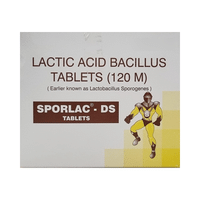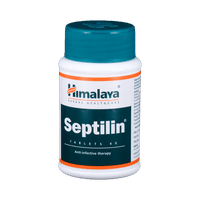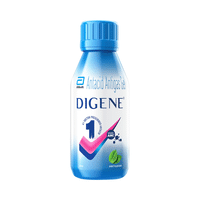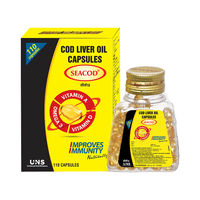Atrocin Eye Ointment
Rs.43.60for 1 tube(s) (3 gm Eye Ointment each)
food interaction for Atrocin
alcohol interaction for Atrocin
pregnancy interaction for Atrocin
lactation interaction for Atrocin
food
alcohol
pregnancy
lactation
No interaction found/established
No interaction found/established
Atrocin Eye Ointment is unsafe to use during pregnancy as there is definite evidence of risk to the developing baby. However, the doctor may rarely prescribe it in some life-threatening situations if the benefits are more than the potential risks. Please consult your doctor.
CONSULT YOUR DOCTOR
Information regarding the use of Atrocin Eye Ointment during breastfeeding is not available. Please consult your doctor.
CONSULT YOUR DOCTOR
SALT INFORMATION FOR Atrocin
Atropine(1% w/w)
Uses
Atropine is used in the treatment of bradycardia.
How it works
Atropine is an anticholinergic medication. It works by blocking the activity of a chemical messenger (acetylcholine) in the brain.
Common side effects
Dryness in mouth, Difficulty in urination, Constipation, Blurred vision, Dry skin, Slow heart rate, Photophobia, Dilatation of pupil, Loss of accommodation, Fever, Confusion, Eyelid swelling, Tachycardia, Reduced sweating, Heat intolerance, Skin rash, Dizziness, Skin flushing, Restlessness, Tremors, Fatigue, Eye pain, Stinging in the eyes, Superficial keratitis, Decreased lacrimation, Papillary conjunctivitis, Contact dermatitis, Local reaction, Hypotension (low blood pressure), Respiratory depression, Hallucination, Abnormality of voluntary movements, Speech disorder, Hyperactivity, Seizure
Tetracycline(1% w/w)
Uses
Tetracycline is used in the treatment of bacterial infections.
How it works
Tetracycline is an antibiotic. It stops bacterial growth by preventing synthesis of essential proteins required by bacteria to carry out vital functions.
Common side effects
Vomiting, Nausea, Diarrhea, Discoloration of teeth, Hemolytic anemia, Itching, Skin discoloration, Stomatitis (Inflammation of the mouth), Tongue discoloration, Decreased appetite, Clostridium difficile associated diarrhea, Low blood platelets, Decreased white blood cell count (neutrophils), Idiopathic intracranial hypertension, Thrombotic thrombocytopenic purpura
SUBSTITUTES FOR Atrocin
No substitutes foundExpert advice FOR Atrocin
- It is given into the veins or muscles under the supervision of a doctor.
- It may cause blurred vision. Do not drive or do anything that requires mental focus until you know how this medicine affects you.
- Avoid taking Atropine if you have urinary retention, high blood pressure, any heart problems or high thyroid hormone level.
- Inform your doctor if you notice a skin rash, swelling of the face, or tongue and trouble breathing.
- Inform your doctor if you are pregnant, planning pregnancy, or breastfeeding.
Frequently asked questions FOR Atrocin
Atropine
Q. Is atropine a controlled substance?
No, it is available as prescription drug
Q. Is atropine a beta blocker /calcium channelblocker/adrenaline/ parasympathomimetic/vasopressor?
No, atropine belongs to class of medication called as anticholinergics or cholinergic antagonist
Q. Is atropine an agonist or antagonist?
Atropine is an antagonist of cholinergic receptors
Tetracycline
Q. Can I drink milk while taking Tetracycline?
No, you should avoid using milk and milk products while taking Tetracycline. Consuming dairy products along with Tetracycline can decrease its absorption from the stomach, which may lead to inadequate affect of this medicine.
Q. How long after taking Tetracycline can I eat?
It is best to wait for 2 hours after consuming Tetracycline. Consuming food along with Tetracycline may decrease its absorption from the stomach.
Q. Can I take Tetracycline with food if its causing stomach upset?
Yes, you can take Tetracycline with food if its causing you stomach upset. However, avoid consuming milk and milk products 1 hr before and 2 hr after taking this medicine.






















